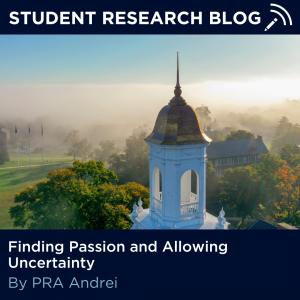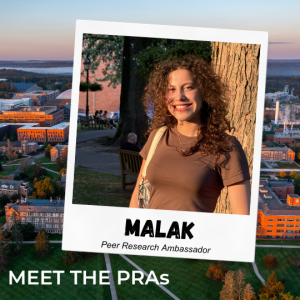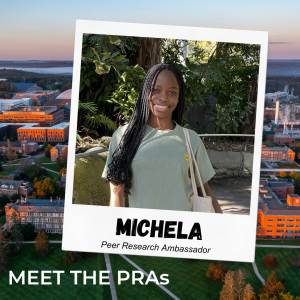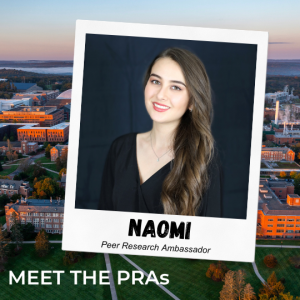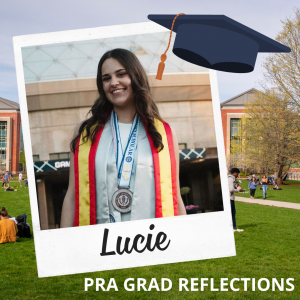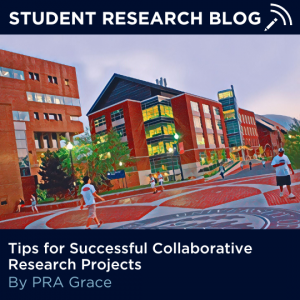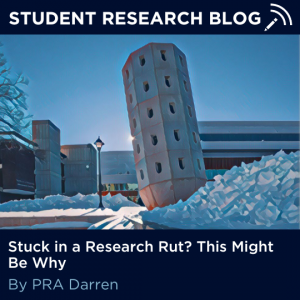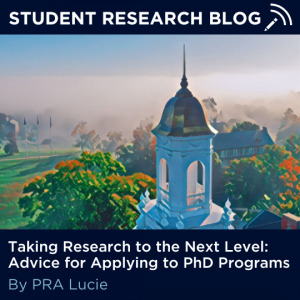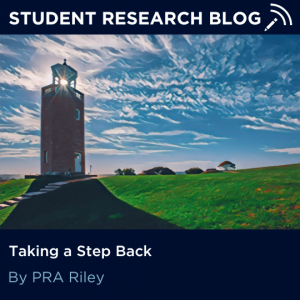Meet Annette St. Jacques ’26, an OUR Peer Research Ambassador majoring in Molecular & Cell Biology.
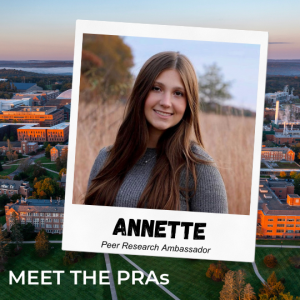 What is the focus of your research?
What is the focus of your research?
I am a member of the Hanlon Lab in the Molecular & Cell Biology department. We study how new chromosomes form, move, and change over time by using the fruit fly as a model. I am interested in how age impacts the number of chromosomes that are passed down each generation.
Why did you get involved in research?
I got involved in research to try something new. I enjoyed classes with lab sections because of the hands-on aspect of science. During my first year at UConn, I took a First Year Experience course that focused on exploring STEM undergrad research. In that class, I was able to connect with faculty and learn about the different opportunities on campus. After that, I was curious about research and tried to find a lab. Continue reading
